Influencer marketing has come a long way in the past few years.
If you’re searching for an effective marketing strategy to fulfill your brand awareness, engagement or sales goals, influencer marketing can potentially be the way forward.
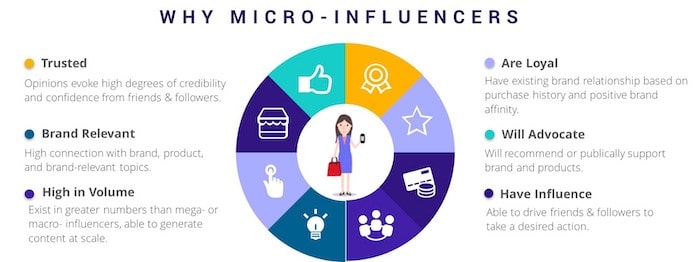
Source
According to Linqia, 92% of marketers using influencer marketing found it to be successful.
You may assume that you’d need an extensive marketing budget to work with the top social media influencers. However, working with a micro-influencer can lead to successful results at a lower cost to your business.
So, What is a Micro-Influencer?
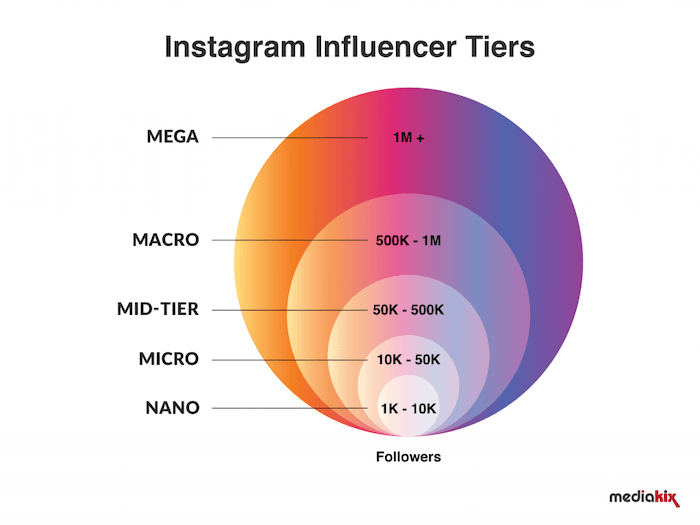
Source
A micro-influencer is someone with 10,000 to 50,000 followers. While a micro-influencer may have less followers than top influencers, they tend to have good engagement rates with a well-connected community in their niche.
If you plan on working with a micro-influencer, it’s important to determine a few factors before trusting them with your marketing campaign.
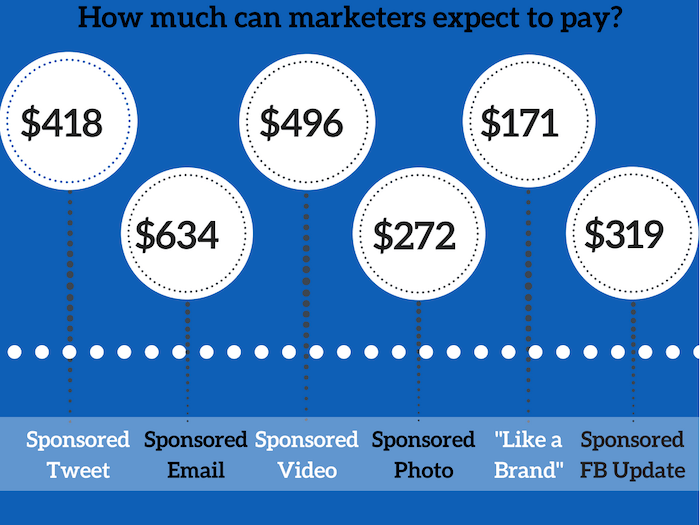
Source
Working with a micro-influencer can cost you around $500 for an Instagram post, so knowing that you’re paying for a potentially successful marketing campaign that meets your goals is essential.
How can you ensure success when working with a micro-influencer?
You need to ask them marketing questions when you approach them.
What Should You Ask a Social Media Influencer?
Knowing what questions to ask social media influencers helps you to determine if the micro-influencer is the right person to work with your brand
Try using these influencer marketing interview questions when you approach micro-influencers:
[Question #1] Do You Relate to Our Target Audience?
Use your target customer profile to understand your audience and correlate this with the audience of potential influencers you plan to work with.
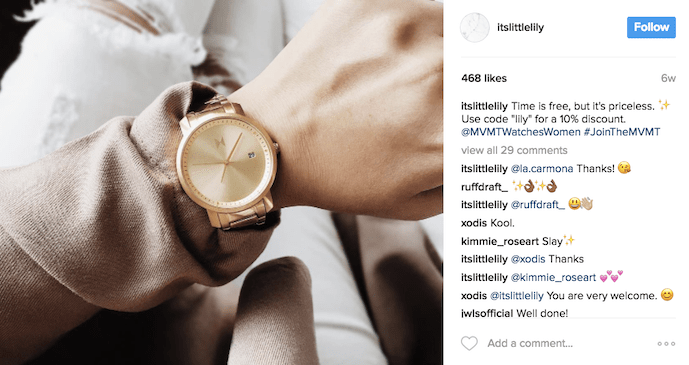
Source
For example, if you’re a clothing brand that wants to target young professionals who are physically active and health conscious, then you don’t want to work with an influencer who prefers to target festival goers (not that a physically active, healthy young professional can’t be a festival goer, but there’s a different vibe to the content).
Asking an influencer whether or not they believe they relate to your target audience gives you more insight into their brand, which helps you determine if they’re a good match.
[Question #2] What Type of Content Do You Produce?
Asking a micro-influencer what type of content they produce will assist your marketing campaign, even if you can see for yourself what type of content they produce when you visit their Instagram profile.
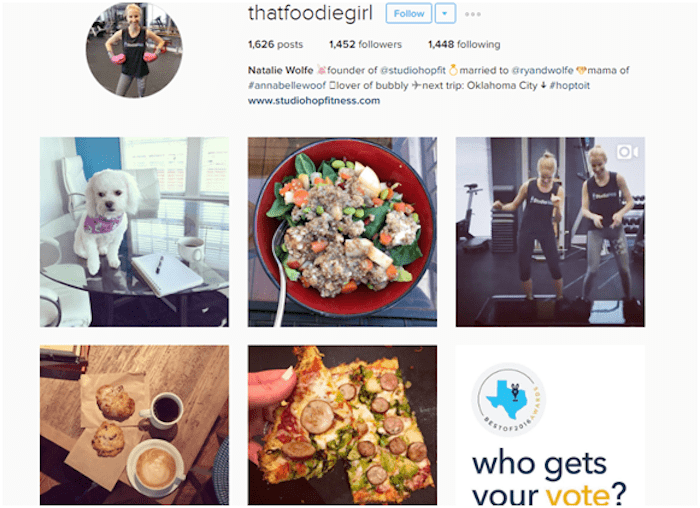
Source
When an influencer can clearly tell you what kind of content they produce, you know they have similar values to you and your brand identity in mind when they agree to work with you.
Remember, an influencer’s content is a reflection of their brand identity, which may not be compatible with the image you’re trying to portray.
For instance, if you’re a family-friendly brand, working with an influencer who doesn’t portray this lifestyle could make your campaign come off as inauthentic, harming both the influencer and your brand.
It’s important to ensure that the content an influencer produces for you is going to complement your brand. Your audience should feel that it’s a good match, especially if you’re hoping to increase brand awareness or increase sales.
[Question #3] Can You Meet Our Deadlines?
This is one of those practical questions you’d think you don’t have to ask, but it’s always best to get it out in the open.
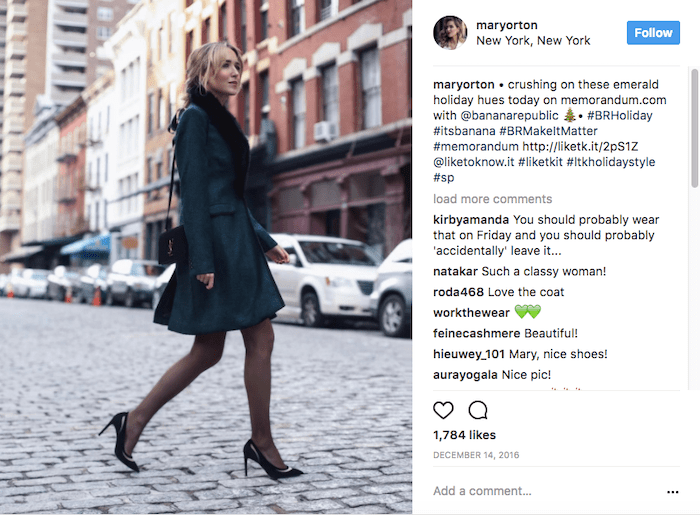
Source
If you have a new product launching, you may have certain deadlines that you wish to meet. Either way, it’s best to ensure you have a specific deadline for your micro-influencer to meet your marketing guidelines.
Additionally, you’ll want to gauge how quickly your micro-influencer responds to emails and messages. Delays in replying can mean delays in publishing your content.
Influencers who are easy to reach tend to work better with brands, thanks to their good communication and positivity.
[Question #4] What Are Your Engagement Metrics?
An important metric to look for is engagement. How engaged are the micro-influencer’s audience with their content?
Look at likes, comments, and shares. While likes can indicate good engagement, they can be easily purchased via online platforms.
Shares and comments take more effort. Take a look at who is leaving comments on their posts and if these seem genuine.
Fake influencers mean you’re not going to achieve successful results from your marketing campaigns, as these micro-influencers don’t actually have any influence over their audience. Avoid getting ripped off by checking for faux analytics.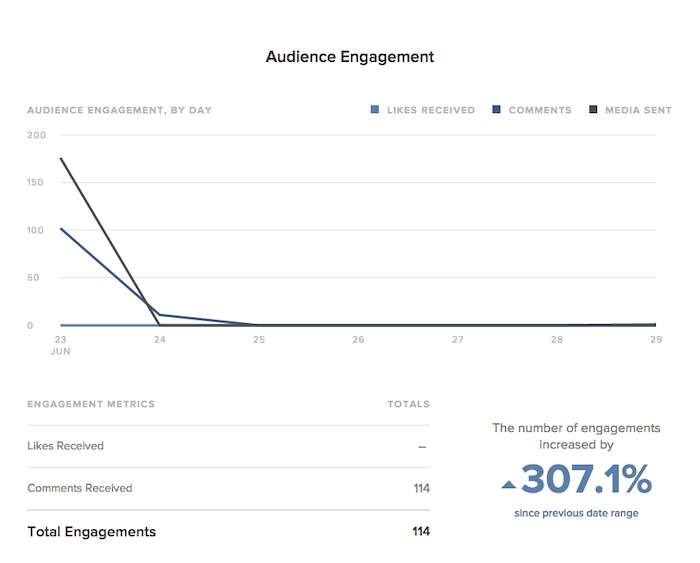
Source
If their engagement metrics are low, you may wish to work with other influencers instead.
Instagram has a baseline engagement rate of between 3% and 6%, so anything more than this is considered excellent.
Facebook and Twitter tend to have baseline engagement rates of between 0.5% and 1%.
The most transparent of influencers will be more than willing to give you specific engagement metrics, but how specific you want their response to be depends on what you’re looking for.
[Question #5] Do You Have Any Other Analytics?
Analytics help you to determine what your ROI is going to be. Alongside engagement metrics, you’ll be searching for analytics for the platform the micro-influencer uses.
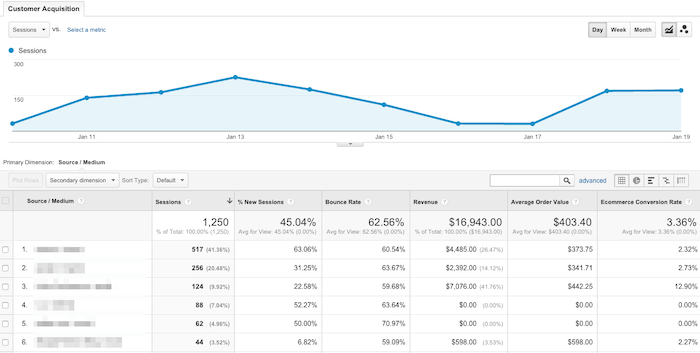
Source
Google Analytics will give you an oversight for blog/website statistics, while Iconosquare for Instagram and Page Insights for Facebook can give you an insight into analytics for these platforms.
When it comes to drawing up a contract for working with a micro-influencer, ensure that analytics can be provided for your campaign before making payment.
[Question #6] Which Previous Collaborations Have Been Your Most Successful?
Ask micro-influencers you’re looking to work with if they have worked on previous campaigns. This enables you to view the content they’ve produced for other brands, in addition to campaign analytics.
⟶ What engagement metrics did the campaign produce on their platform?
⟶ How many likes/comments did brand posts receive?
It’s also advantageous to look at how this compares with their other metrics. If their previous campaigns have pulled in significantly higher or lower numbers in comparison to their usual metrics, it may be worth investigating deeper.
[Question #7] Are You comfortable With All of the Aspects of the Marketing Campaign?
Before you sign contracts, it’s essential to ask micro-influencers if there are comfortable with the aspects of your marketing campaign.
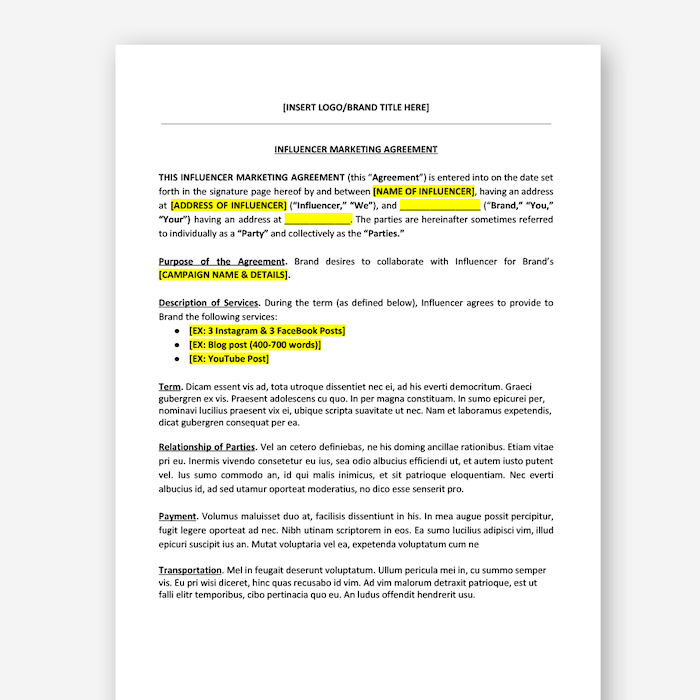
Source
- Can they produce the type of content you want them to produce?
- Can they follow brand guidelines, the required format, and length of the campaign?
- Are they able to correctly disclose the collaboration?
- Are they able to share their content before it goes live?
- Can they make revisions if required?
Meeting these agreements will help to make your campaign successful and ensure you’re on your way to meeting your ROI goals.
[Question #8] Are You Aware of Our Brand?
If a micro-influencer is aware of your brand and is a fan, they may have already produced content on your products or services. This means that a paid collaboration will appear more natural and sincere to their audience, helping to provoke a positive reaction.
Micro-influencers who are fans of your brand may also be willing to command a lower fee or work in return for free products/services.

A quick search of their social media or blog can usually highlight instances of brand mentions. Additionally, a Google search may bring up micro-influencers who have mentioned your brand or products.
Find Legit Instagram Influencers for Your Brand
Let us do it for you, with this exclusive offer.
For just $7 we’ll send you a custom list of 30 micro-influencers in categories such as:
Automotive | Beauty/Skincare | Cannabis | Fashion/Apparel | Fitness | Food & Beverage | Golf | Guns | Pets | Photographer/General | Swimwear | Travel | Yoga
If you’re serious about leveraging Instagram influencers to grow your business, you’d be crazy not to take us up on this.
Each list is customized to your exact requirements. Yes, we actually have a real human being go on Instagram and dig around for these people!
At only $7, it’s a tiny investment that will save you hours of work. So get it now while you can:
==> GET YOUR CUSTOM INFLUENCER LIST <==
[Question #9] What Platforms Do You Use?
While many micro-influencers use social media to share content, many also own blogs, websites, and YouTube channels.
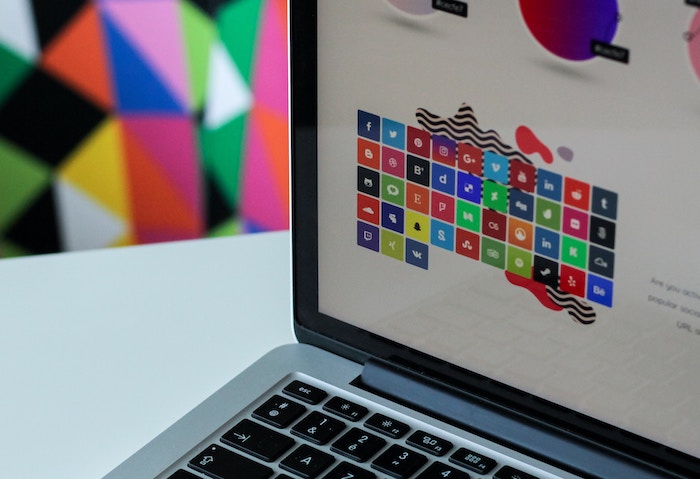
Source
Some influencers may have access to magazines and television, so there’s a wider opportunity for them to promote your brand.
[Question #10] Are You Working, or Have You Worked, With Competitors?
If you’re planning on working with micro-influencers, it’s highly likely that your competitors are doing the same.
Ask micro-influencers if they’ve worked with your competitors, and in what capacity. Take a look at their previous campaigns and find out their analytic results. You may find that there are aspects you can do better, or you may be able to utilize some points of their campaigns.
If a micro-influencer is going to be working with a competitor around the same time as you plan to, you may prefer to hold back until their campaign has been promoted.
[Question #11] How Often Do You Collaborate on Paid Partnerships?

Ask influencers how often they work on paid partnerships.
Working with a micro-influencer who collaborates on a lot of paid partnerships may not help your brand campaign, as it could appear insincere to their audience.
An influencer who works on many brand campaigns may also have worked with your competitors, so promoting your product/service will also seem unnatural.
Working with a micro-influencer who has only worked on a few brand campaigns may potentially be a better fit for you. Just remember to check both the influencer and previous campaign analytics.
[Question #12] What Are Your Fees?
Fees for each micro-influencer tends to vary between individuals and the type of content they’re producing.
While there’s room for negotiation, make sure their fees are in line with your marketing budget.
The average cost for Instagram is $1,000 per 100,000 followers, while YouTube tends to be around $2,000 per 100,000 subscribers.
Some micro-influencers may also be willing to work for free products if they love your brand.
A deposit may be requested before work on your collaboration commences. Your influencer agreement should cover all aspects of your marketing campaign, including payment.
Choose a Micro-Influencer Who is a Good Match For Your Brand
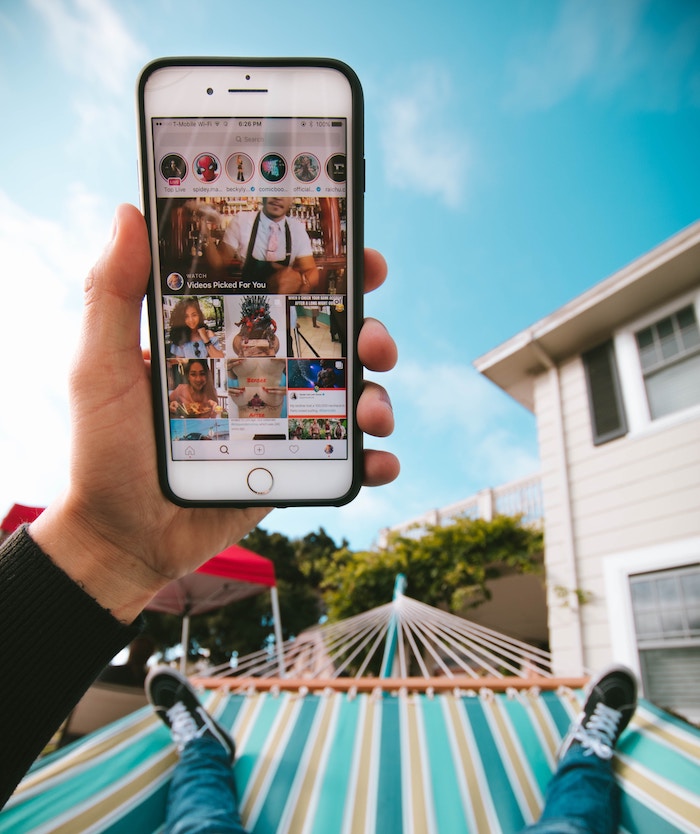
Source
Using these influencer marketing interview questions will help you to determine the best micro-influencers to work with.
To meet your marketing and business goals, knowing what questions to ask social media influencers helps to ensure you meet your projected ROI.


